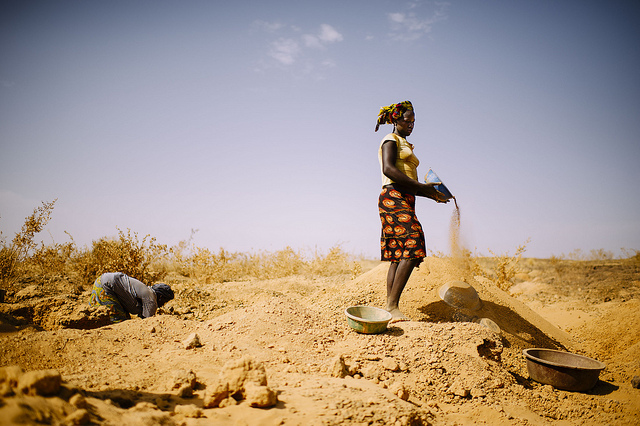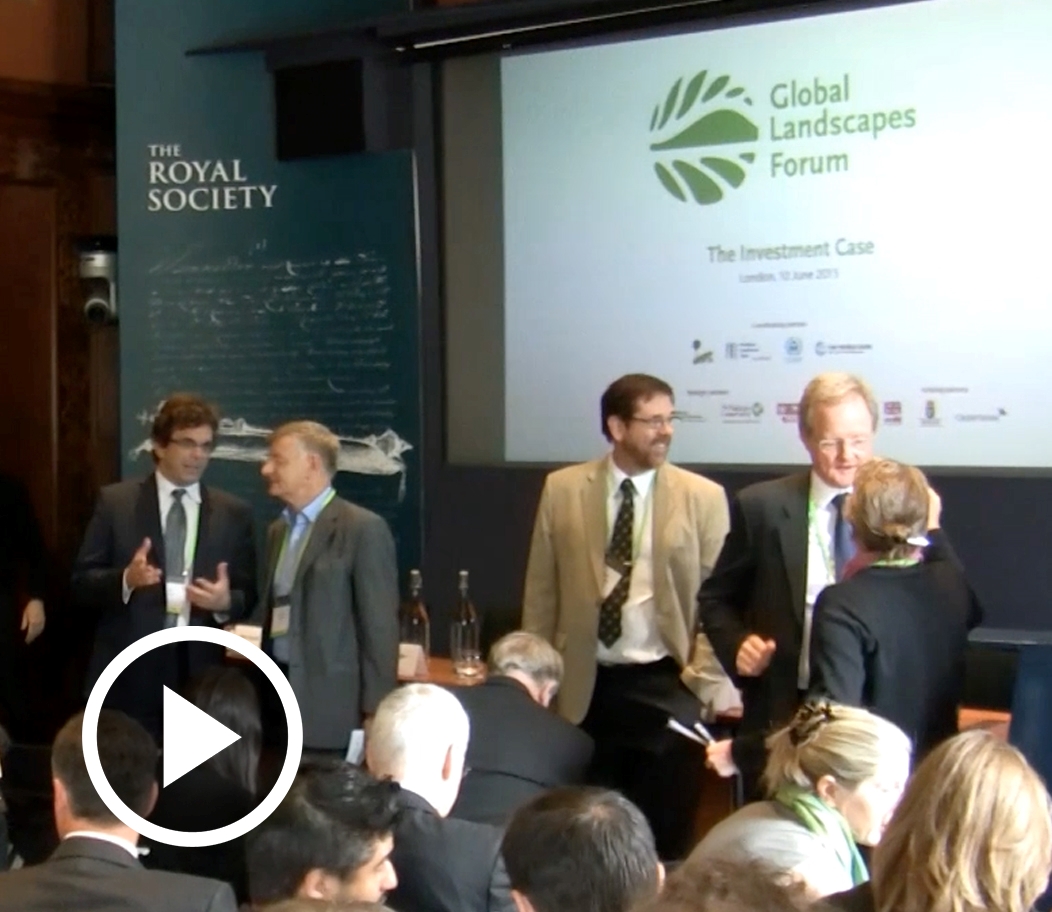
Diamonds, gold, oil, natural gas, extensive forest and farm land: Africa has such abundant resources that it is little wonder that, each year, billions of dollars in investments flow into the continent from abroad.
Yet such investments tend to enrich mainly elites and outside investors, to the detriment of the poor and the environment—and so don’t necessarily contribute to sustainable development.
And that may be because existing legal frameworks tend to favor the powerful and vested interests, a new study of laws governing land use in three African countries suggests.
“There are several factors at play in legal systems in these countries that thwart sustainable landscapes governance and investments,” said one of the study’s authors, Andrew Wardell, a senior manager at the Center for International Forestry Research (CIFOR).
“These are barriers that reflect the realities that marginalize people, and perpetuate the trap and cycle of poverty, particularly among rural communities.”
Wardell and his co-authors from the International Development Law Organization and faculties of law at the Universities of Zambia, Mozambique and Nairobi analyzed legal documents from Zambia, Mozambique and Tanzania, neighboring countries whose similarities and differences allow for meaningful comparisons.
All three countries officially espouse principles of sustainability and have developed climate change strategies, environmental safeguards and governance mechanisms. Yet these laws do not result in land-use investments that contribute to sustainability or poverty alleviation, the study found.
“The law, in whatever form it takes, whether statutory or customary, provides a framework to negotiate the multiple uses by different actors in a landscape,” he said.
“I think that’s the best way to interpret law and understand why there are these discrepancies between the provisions of the law and what actually happens in practice.”
WHEN MIGHT IS RIGHT
One key finding was that laws tend to be skewed in favor of large-scale developments in sectors such as mining, agriculture and forestry. Therefore, the authors argue, incentives to support small- and medium-sized enterprises could help fight poverty.
One example they cite of how legal frameworks can support sustainable businesses is Tanzania’s Kilimo Kwanza (“Agriculture First”) program, a government initiative that provides smaller enterprises with access to financing and credit.
These are barriers that reflect the realities that marginalize people, and perpetuate the trap and cycle of poverty, particularly among rural communities.
Another challenge is the confusion around customary land tenure, stemming from a lack of transparent documentation and regulations detailing land rights of rural communities who often do not have land titles.
And all three countries have laws that allow ministers to authorize strategic development—for example, in the mining sector in Mozambique—often without consulting local communities to determine whether they might already be using the same land in some way.
“Decision-making is still very centralized,” Wardell said.
The overlap between customary authority and the central government can also have negative consequences for rural communities, he added.
“What came through very clearly was the continued tension between customary and statutory law and its application in many parts of Africa and the role that local chiefs can play completely outside of statutory frameworks,” Wardell said.
That leaves the door open to at times predatory external investments—that is, “the way in which investors can then very cleverly identify the lines of least resistance that enable them to acquire property, which can also be completely outside of any statutory framework,” he added.
Customary leaders were just as likely as elected leaders to succumb to the temptations that lead to “elite capture,” in which a handful of people already in power benefit from land-use decisions while the majority sees little, if any, return, Wardell noted—another reason to support decentralization of power to strengthen accountability.
FROM PAPER TO PRACTICE
All of which means there is a need for clearer regulations governing land use—but even that won’t be enough to make a difference.
“How do you translate the aspirational notions of a law or a regulatory framework to ensure the law is enforced into practice?” Wardell said. “This is clearly where there are still fundamental gaps.”
Sustainable land-use investments would also be supported by better sharing of information on the law and legal processes, the study showed; in addition, when negotiating the competing pressures on a landscape, a broad spectrum of societal needs to participate, and decision-making processes need to be transparent at every level of governance.
However, the authors caution, “there are no laws in Zambia, Tanzania and Mozambique that broadly guarantee access to information.”
“It’s surprising to realize that in 2015, despite all the talk and the Aarhus Convention on the right to environmental information, there’s still a chronic lack of information, particularly at the local governance level,” Wardell said.
TOWARD SUSTAINABILITY
Nevertheless, all three countries have initiatives that, if capitalized on, could enable sustainable development.
The Village Land Act that Tanzania passed in 1999 is one example, Wardell said.
“That was the first time since the colonial period that village communities actually had the right to decide how to dispose of the resources on their land,” he said. “It’s unique to sub-Saharan Africa, and one of the reasons Tanzania was included in this research.”
Mozambique is also making strides in that direction, he added.
Yet even where laws that could encourage sustainable investments are in place, the process of supporting those frameworks is moving slowly.
“You emerge from a study in 2014 with similar findings to those conducted decades earlier,” Wardell said. “The one surprise for me was realizing that on several fronts, legal precedents that were put in place 20 years ago are still struggling to ensure that there’s complete compliance with them.”
We want you to share Forests News content, which is licensed under Creative Commons Attribution-NonCommercial-ShareAlike 4.0 International (CC BY-NC-SA 4.0). This means you are free to redistribute our material for non-commercial purposes. All we ask is that you give Forests News appropriate credit and link to the original Forests News content, indicate if changes were made, and distribute your contributions under the same Creative Commons license. You must notify Forests News if you repost, reprint or reuse our materials by contacting forestsnews@cifor-icraf.org.

